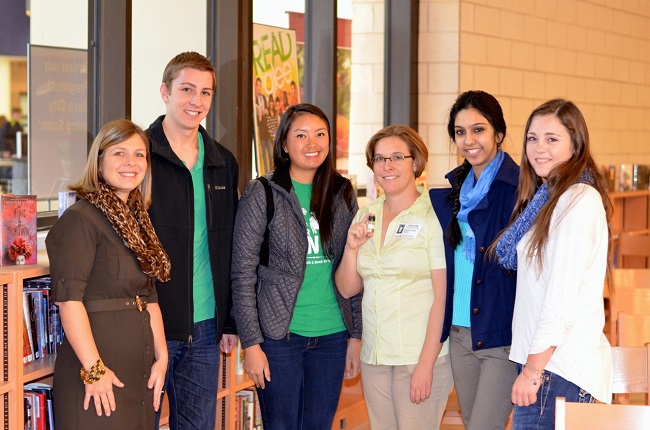 Flower Mound High School and Flower Mound 9th Grade Campus Biology, Anatomy and Aquatic Science classes participated in a special assembly to learn more about the The Carter Center – South Sudan Guinea Worm Eradication program – an initiative that began in 1986 with 3.5 million cases in 21 countries and now has 126 cases in four countries.
Flower Mound High School and Flower Mound 9th Grade Campus Biology, Anatomy and Aquatic Science classes participated in a special assembly to learn more about the The Carter Center – South Sudan Guinea Worm Eradication program – an initiative that began in 1986 with 3.5 million cases in 21 countries and now has 126 cases in four countries.
The program was shared with students thanks to The Carter Center – South Sudan Guinea Worm Eradication Data Manager Hannah Frank.
What is Guinea Worm? It is considered to be a “neglected tropical disease” called Dracunculus Medinensis or nematode roundworm contracted through the consumption of contaminated water.
“We feel it is important for our students to have an outside view of what it is like in other parts of the world,” FMHS/FM 9 Science teacher Renee Wilson said. “The epidemiology aspect of this presentation is especially timely with the measles outbreak. It’s also eye opening to hear Hannah talk about the cultural attitudes and how some people do not believe that there are microscopic organism in their water that will make them sick. Part of her job is to educate the public about the science behind this disease.”
Frank shared how a year after a person contracts the worm, they will experience a painful burning feeling from the worm forming a blister in the skin usually in the lower extremities to exit the body. Typically it takes several weeks for a one meter long (average size) to painfully exit the body.
“I think it’s really important to introduce to students what’s going on outside their community when they are younger,” Frank said. “I enjoy sharing my stories with them, as they are getting ready to go to college. This way they can start thinking about how they can be an active citizen not just in their community, but around the world.”
The rest of Frank’s presentation covered reasons why to prevent the disease; ways to prevent it: health education, filter distribution, case contamination and safe water delivery; the importance of epidemiology; and an example of a live Guinea Worm specimen.
“This particular disease is totally preventable,” Wilson said. “All they have to do is drink from the filter straws, but it still persists. This program interacts with the villages to form relationships, educate people and help improve the sanitation in South Sudan.”
Students were fascinated by the presentation.
“I think a lot of times when we look at working in underdeveloped countries, it is a completely different world than what we are used to,” FMHS student Ayesha Karnik said. “This is a huge eye-opener of the different avenues to work in around the world – not just for education, but to offer health and medical assistance to others.”
FMHS student Blake Archer added: “The work they are doing there is interesting and very inspiring. This presentation shows us different opportunities that we could have to help other people around the world.”
To learn more about The Carter Center – South Sudan Worm Eradication program, click here.
See more pictures, including one of the worms, here.
Elizabeth Haas is part of the public relations team with the Lewisville Independent School District.




















